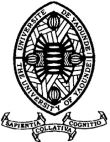Determinants of Non-Observance to Antiretroviral Therapy in the Mayo-Louti Division of the North Region of Cameroon
DOI:
https://doi.org/10.5281/hra.v1i4(Suppl%201).4974Keywords:
Antiretroviral therapy, non-observance, North CameroonAbstract
ABSTRACT
Introduction. The combination of antiretroviral therapy (cART) leads to decrease viral replication and the restoration of immunity, thus improving vital prognosis. Treatment adherence is essential to control HIV infection and avoid complications and the occurrence of resistance. This study aimed at identifying the factors associated with non-adherence to antiretroviral therapy in three health districts of the North region of Cameroon. Methods. This is a cross-sectional study conducted in three health districts of the North region of Cameroon from July to September 2022. Adherence to cART was assessed among Peron Living with HIV (PLHIV) who were followed up at the different treatment centers using a standardized questionnaire. Sociodemographic, clinical and therapeutical data were recorded. Data were analyzed using EPI info 7.2.5.0. Software. Univariate and multivariate analyses were performed to identify factors associated with HAART non-adherence. Result. During the study, 393 patients were recruited and eligible for this study. The average age was 41.3 10.2 with a female predominance of 63.36%. Non-adherence was found among 200 (50.9%) participants. Factors associated with non-adherence included: age below 30 (OR: 2.24, p=0.016), coming from a rural area (OR: 2.24, p=0.042) and illiteracy (OR: 2.87, p=0.002). Conclusion. PLHIVs in the North region of Cameroon have a very poor adherence to HAART. Young age, geographical location, and illiteracy were associated with non-adherence. There is a need for more education for improving HAART adherence among these populations.
RÉSUMÉ
Introduction. Les antirétroviraux (ARV) entraînent une diminution de la réplication virale et la restauration de l'immunité, améliorant ainsi le pronostic vital. Ainsi, l'observance thérapeutique est essentielle pour contrôler l'infection par le VIH et éviter les complications et les résistances aux ARV. L'objectif principal était d'évaluer les facteurs associés à la non-observance aux ARV dans trois Districts de Santé du Nord-Cameroun. Méthodologie. Il s'agissait d'une étude transversale descriptive et analytique menée au Nord-Cameroun, durant la période de 3mois (juillet à septembre 2022). Un questionnaire standardisé nous a permis d’évaluer l’adhérence aux ARV chez les patients suivis dans les différentes Unités de Prise en Charge. Les données sociodémographiques, cliniques et thérapeutiques ont été recodées et analysées à l’aide du Logiciel EPI info version 7.2.5.0. L’analyse univariée et multivariée ont permis d’identifier les facteurs associés à la non-observance aux ARV. Résultat. 393 patients étaient éligibles. L'âge moyen était de 41,3 10,2 avec une prédominance féminine à 63,36 %. La non-adhérence a été retrouvé chez 200 (50,9%) des participants. Les facteurs associés à la non-adhérence incluaient l'âge inférieur à 30 ans (OR: 2.24, p=0.016), la provenance d'une zone rurale (OR: 2.24, p=0.042) et l'analphabétisme (OR: 2.87, p=0.002). Conclusion. Les Personnes vivant avec le VIH au Nord-Cameroun ont une faible adhérence aux ARV. Les sujets jeunes, l’origine géographique et l’analphabétisme étaient associés à la non-observance thérapeutique. Il serait essentiel d'insister sur une éducation thérapeutique appropriée afin d’améliorer leur observance thérapeutique aux ARV.
Downloads
Published
How to Cite
Issue
Section
License
Authors who publish with this journal agree to the following terms:
- Authors retain copyright and grant the journal right of first publication with the work simultaneously licensed under a Creative Commons Attribution License CC BY-NC-ND 4.0 that allows others to share the work with an acknowledgement of the work's authorship and initial publication in this journal.
- Authors are able to enter into separate, additional contractual arrangements for the non-exclusive distribution of the journal's published version of the work (e.g., post it to an institutional repository or publish it in a book), with an acknowledgement of its initial publication in this journal.
- Authors are permitted and encouraged to post their work online (e.g., in institutional repositories or on their website) prior to and during the submission process, as it can lead to productive exchanges, as well as earlier and greater citation of published work










